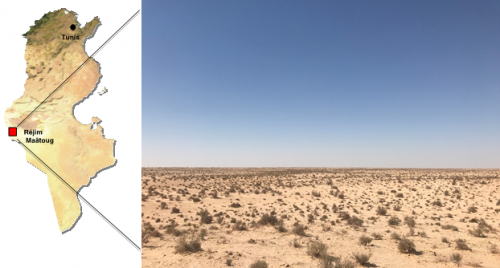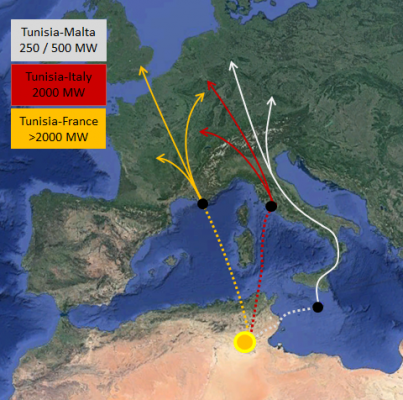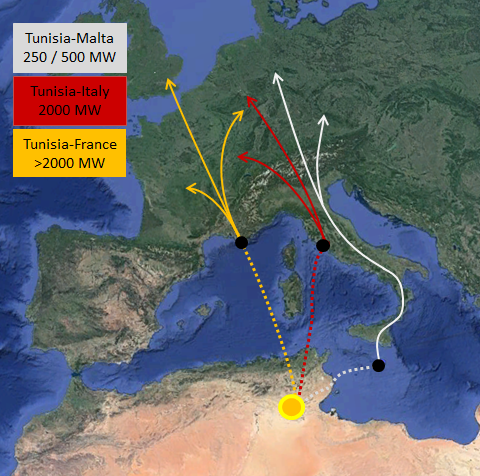Europe could soon be getting electricity made from solar energy captured by a plant in the Sahara Desert.
A request to start building the plant has just been filed with the Tunisian government.
 The proposed site of the solar plant in the Sahara Desert. Credit: TuNur
The proposed site of the solar plant in the Sahara Desert. Credit: TuNur
If authorized, the solar energy plant, will be constructed in the Sahara Desert, near Rejim Maatoug in Southwest Tunisia, and could be exporting electricity as early as 2020.
When complete, the plant will generate 4.5 gigawatts of power and transmit it from the North African coast to Malta, Italy, and France using undersea cables.
Molten salt and mirrors
To capture solar energy, the Sahara Desert plant will use mirrors to reflect light from the sun onto a tower that contains molten salt.
It can then either use the molten salt’s thermal energy to heat up steam and make electricity right away, or it can store it to make electricity at another time, such as at night.
The project is part of a plan to help Europe reduce its reliance on fossil fuels and achieve the emissions target promised in the Paris Climate Agreement.
Enough power for 5 million European homes
The 4.5 gigawatts of “carbon-free” electricity that the plant will generate will be enough to power over 5 million European homes or run 7 million electric vehicles.
The company behind the project is called TuNur Limited. It is a private company owned by the solar plant developer Nur Energie Limited and investors from Malta and Tunisia.
The project marks another chapter in Tunisia’s history as an energy exporter to Europe, which began in 1983, when a gas pipeline from neighbouring Algeria to Italy was brought into service.
‘New energy corridor’
The land in the Sahara Desert where the solar plant will be built is owned by the El Ghrib Collective Lands Management Board. Their Chairman, Mohamed Larbi Ben Said, says that it will bring much-needed economic development to the area, and will give “true value to quasi-desert lands in an environmentally sustainable way.”
 The electricity will be exported from the North African coast to Malta, Italy, and France using undersea cables. Credit: TuNur
The electricity will be exported from the North African coast to Malta, Italy, and France using undersea cables. Credit: TuNur
TuNur say that the project will “contribute significantly to the decarbonization of the European grid” and will open a “new energy corridor between North Africa and Europe.”
It will also “provide a strong stimulus to enhance the Tunisian economy and further its path toward sustainable growth,” they add.

